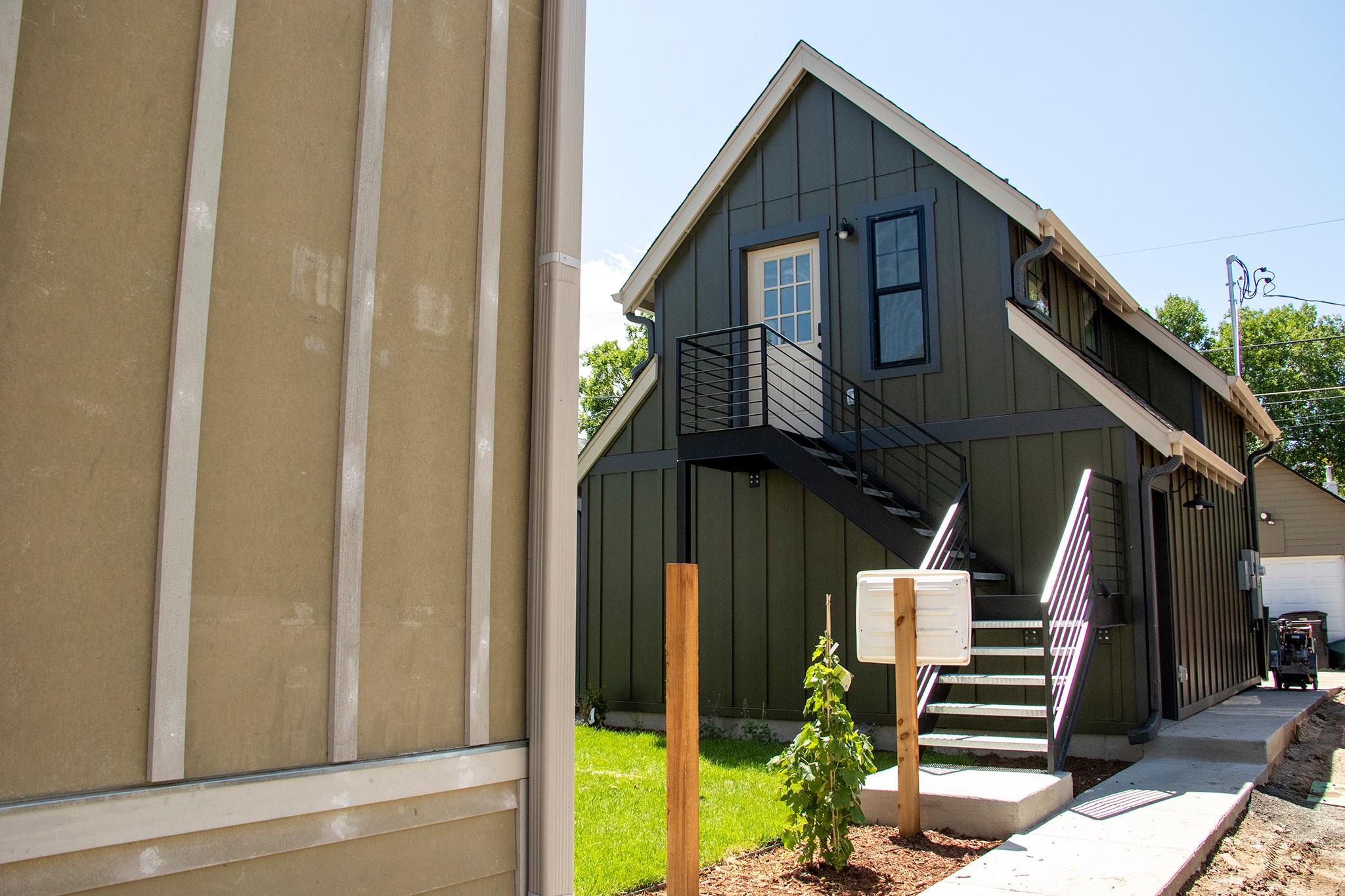Hearing about the experiences of disenfranchised neighbors in Rio de Janeiro, almost 6,000 miles from her home, reinforced a Denver urban planner's desire to get her own city thinking as broadly as possible about how to address housing challenges.
The visiting planner, Theresa Williamson of Rio, also came away from a discussion at the Biennial of the Americas, Denver's every-other-year festival of culture and conversation, intrigued by the parallels between her hometown and Colorado's capital.
"I'm always interested in how community organizing happens," said Williamson, executive director of the Brazilian nonprofit Catalytic Communities.
As part of a panel discussion on housing under the biennial umbrella, Williamson explained to several dozen people gathered in a meeting room at McNichols Civic Center Building that her organization had supported residents of favelas who are working to build a community land trust. She also gave a quick history of favelas, traced to the period immediately after Brazil abolished slavery in 1888. Freed slaves who came to the cities in search of work had to build their own makeshift communities, the favelas, because "there was no housing made available by the government."
Development in the favelas has been sporadic, with impoverished communities building what they can and the government occasionally intervening. That government intervention took the form of demolition and evictions in the lead-up to the 2016 Olympics. The neighborhoods also have faced gentrification.
Williamson described Catalytic Communities' role as helping favela dwellers connect with each other and with the rest of the world. Catalytic Communities helped organize a series of forums on land trusts, focusing on a grassroots model from Puerto Rico. Basically, the land is held communally and never sold, sparing homeowners a major cost even as they build equity in the houses on the land. The favela neighbors don't yet have a trust but are working toward that goal.
"Of course these processes ... take a long time," Williamson said, glancing at fellow panelist Renee Martinez-Stone, director of the West Denver Renaissance Collaborative.
Martinez-Stone spoke at the forum about efforts that her group of West Denver residents, funders, city agencies and nonprofits has undertaken to help low-income homeowners build accessory dwelling units, or granny flats. Tiny homes in backyards could provide rental income to help homeowners stay in gentrifying neighborhoods as property taxes and other costs rise.
Just as Williamson sketched out the legacy of injustice and inequality that has helped shaped Rio's favelas, Martinez-Stone pointed to the U.S. federal government's practice of redlining.
Redlining is when the government and real estate professionals designated neighborhoods whose residents were predominately minority or immigrant as risky places in which to make home loans.
Martinez-Stone included in her presentation a slide showing a redlining map from 1938 in which west Denver neighborhoods were among those marked as loan no-go areas. Past policies have ensured that residents of such neighborhoods are still more likely than others to have low incomes and savings, making them vulnerable to displacement as wealthier newcomers have started to see the advantages of walkable inner city neighborhoods.
As part of the West Denver ADU project, in return for help with architectural design, building permits and financing, homeowners will keep the rents below market rates, adding to Denver's stock of affordable housing.
It's taken Martinez-Stone years to raise funds, obtain model ADU designs, work through city building requirements and educate potential ADU-builders.
"It's a slow process when we're really trying to build uphill," Martinez-Stone said.
She added later in an interview that the community land trust idea has come up from time to time at west Denver neighborhood meetings. She has heard suspicion that land trusts would undermine property rights.
"We have to bring land trusts to the table a little bit more," she said after listening to Williamson's presentation. In addition to the Rio model Williamson described, she noted Denver has its own version of a grassroots land trust in a project in the northern neighborhoods of Globeville and Elyria-Swansea.
No possible solutions should be discounted, she said.
"We're one solution of what I think needs to be a larger tool box," she said. "There haven't been enough tools in general."













